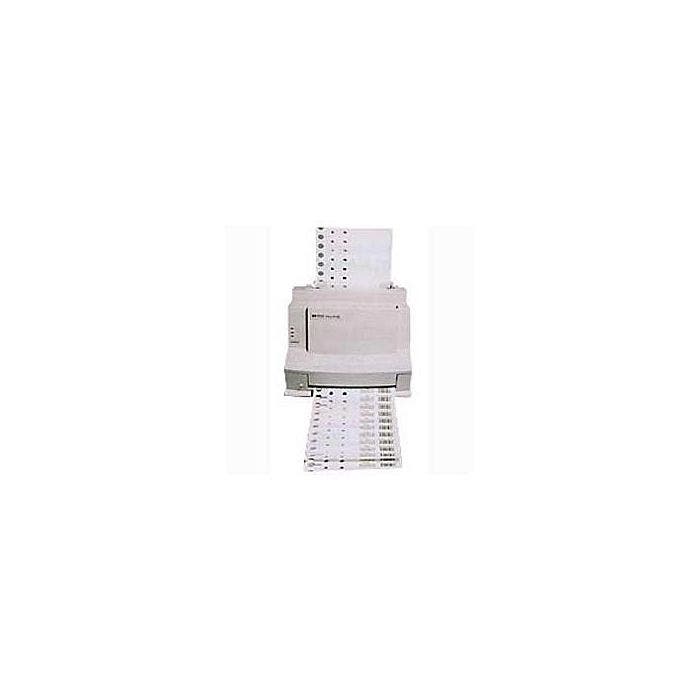Slip'N Lock Loop Lock Labels for Laser Printers, White, 1in Width x 11in Length, Pack of 1,000
Ships Direct 

This item ships directly from our vendor. Please allow additional time for order processing and delivery. For additional details, please contact our customer service department.
In stock
SKU
LZT111-2W
$146.95
READ MORE...
Product Information
Direct Shipment Notice
Please note: this item ships directly from the manufacturer, and is excluded from free shipping promotions.
Product Specs
- 1" x 11" attached side by side
- 1000 per package, 8/sheet, 125 sheets/package, white only
- Perforated section on label tears off for record-keeping or customer claim ticket purposes
Product Warranty Information

- This product is covered under A.M. Leonard's exclusive 30-Day Down to Earth Guarantee. Click Here for more Details.
Product Features
- These may have a "paper" feel but they are actually vinyl
- Customer should use a true laser-jet printer in order for their printing to stay put. A bubble jet or ink jet won't work; it is like laying wet ink on that surface and it won't dry
Product Shipping Weight
- 4.3 pounds
Frequently Asked Questions
1. How do I create a low maintenance garden?
To create a low maintenance garden, choose native plants that are adapted to your climate and soil conditions. Use mulch to reduce weeds and retain moisture. Install a drip irrigation system to reduce water usage and automate watering. Lastly, consider installing hardscaping features such as paths or patios that require little upkeep.
2. How do I improve the drainage in my yard?
To improve the drainage in your yard, you may need to amend the soil with organic matter such as compost or topsoil. Installing drainage pipes or French drains can also help to redirect water away from problem areas. Adding plants that are tolerant of wet conditions, such as bog-loving plants, can also be beneficial.
3. How often should I water my lawn?
The frequency of watering your lawn depends on several factors including climate, soil type, and lawn species. A good general rule is to water deeply and infrequently, rather than shallowly and frequently. 1-2 inches of water per week is typically sufficient for most lawns. Allow the top 1-2 inches of soil to dry out between waterings to encourage deep root growth.
4. How can I attract pollinators to my garden?
To attract pollinators such as bees and butterflies to your garden, plant a variety of flowering plants that bloom at different times throughout the growing season. Choose plants that are native to your area and provide a variety of colors and shapes. Avoid using pesticides and herbicides which can harm pollinators. Provide nesting and resting sites for bees such as bee houses or bare areas of soil.
To create a low maintenance garden, choose native plants that are adapted to your climate and soil conditions. Use mulch to reduce weeds and retain moisture. Install a drip irrigation system to reduce water usage and automate watering. Lastly, consider installing hardscaping features such as paths or patios that require little upkeep.
2. How do I improve the drainage in my yard?
To improve the drainage in your yard, you may need to amend the soil with organic matter such as compost or topsoil. Installing drainage pipes or French drains can also help to redirect water away from problem areas. Adding plants that are tolerant of wet conditions, such as bog-loving plants, can also be beneficial.
3. How often should I water my lawn?
The frequency of watering your lawn depends on several factors including climate, soil type, and lawn species. A good general rule is to water deeply and infrequently, rather than shallowly and frequently. 1-2 inches of water per week is typically sufficient for most lawns. Allow the top 1-2 inches of soil to dry out between waterings to encourage deep root growth.
4. How can I attract pollinators to my garden?
To attract pollinators such as bees and butterflies to your garden, plant a variety of flowering plants that bloom at different times throughout the growing season. Choose plants that are native to your area and provide a variety of colors and shapes. Avoid using pesticides and herbicides which can harm pollinators. Provide nesting and resting sites for bees such as bee houses or bare areas of soil.
Write Your Own Review


